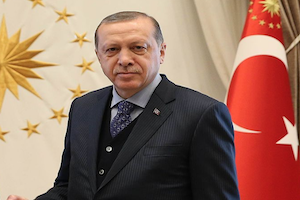Erdogan Talks Tough on Nuclear Weapons as Turkey Goes Ballistic
By Micha’el Tanchum
November 15, 2019
In early September 2019, Turkish President Recep Tayyip Erdoğan surprised many in the international community with his declaration that it was unacceptable for nuclear armed powers to prohibit Turkey from acquiring nuclear weapons. While many analysts dismissed Erdoğan’s declaration as more rhetorical posturing designed to advance Turkey’s status in the regional security architecture, the president’s remarks reveal Turkey’s perception of its own deepening strategic vulnerability vis-a-vis its regional rivals. Lacking the strategic weapons system to deter Iran, Saudi Arabia, or Israel, Erdoğan’s tough talk signals a shift in its nuclear policy that will likely be revealed in the advancement of its ballistic missile program.

The Future of NATO's Nuclear Weapons on Turkish Soil
By Richard Weitz (vol. 3, no. 7 of the Turkey Analyst)
One reason why Israeli Prime Minister Benjamin Netanyahu decided to skip this week’s Nuclear Security Summit in Washington is that Turkish Prime Minister Recep Tayyip Erdoğan made clear that he planned to raise the issue of Israel’s covert nuclear weapons program at the meeting. The Israeli government has long refused to confirm its possession of its widely suspected nuclear arsenal. One irony of this development is that Turkey itself is commonly recognized as having dozens of nuclear weapons stored on its territory. The most profitable non-proliferation tool in Turkey’s case would be to assure Turks that they will play an essential role in NATO’s security policies and that their preferences will have a major impact in shaping the alliance’s nuclear policies.


